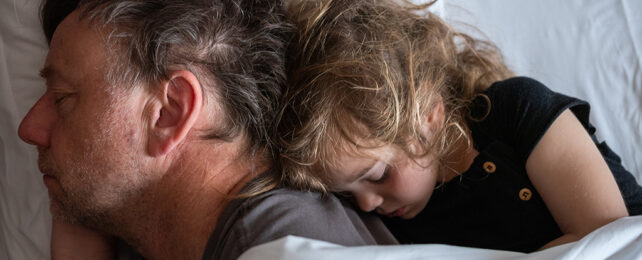Parents in the US regularly give children as young as preschoolers the supplement melatonin, despite a lack of evidence to support its safety or effectiveness, new research reveals.
A survey of parents found nearly one in five school-aged children and pre-teens use melatonin supplements to help them fall asleep; quite a jump from the 1.3 percent use reported in a broader age group five years ago.
"We are not saying that melatonin is necessarily harmful to children," explains Lauren Hartstein, a sleep and development scientist at the University of Colorado Boulder.
"But much more research needs to be done before we can state with confidence that it is safe for kids to be taking long-term."
Earlier this year, Hartstein and colleagues asked US parents of 993 kids aged 1 to 13 years about their children's use of melatonin over the past 30 days. The results were very different from 2017–2018 data, which included people aged 19 and under.
Among children aged 1 to 4, 5.6 percent had taken melatonin supplements within the past month. The rate increased to 18.5 percent in 5 to 9 year olds, and among those aged 10 to 13, 19.4 percent were using the sleep aid.
Children under 5 years old were given up to 2 mg, while those aged 10 to 13 were given as much as 10 mg. The duration of taking melatonin often exceeded 12 months.
"Parents are beginning to give melatonin at a relatively young age and for an extended period of time," Hartstein says.
"While in much of the world melatonin is a controlled substance that requires a prescription to obtain it, in the United States, it's considered a dietary supplement by the FDA and it therefore faces much looser regulation and doesn't require a prescription."
The pineal gland, located deep within our brain's center, secretes melatonin at the end of the day. The hormone signals to our bodies that it's time to wind down and get some sleep, helping keep our circadian rhythms regular.
People who have trouble sleeping often take melatonin supplements for a gentle nudge towards slumber. The available evidence says it's safe to use for a short time of one to three months and in doses of 0.5 to 1 milligrams (mg), but long-term effects are unknown.
The number of pediatric cases of melatonin ingestion reported to poison control centers rose by 530 percent between 2012 and 2021, mostly involving children under 5.
A recent study of 25 US-sold melatonin gummies found 22 misreported melatonin content, with one containing more than three times the dose stated on its label.
"Parents may not actually know what they are giving to their children when administering these supplements," says Hartstein.
There is evidence that supplementing with melatonin can help people with autism get a better night's sleep, and studies have uncovered abnormalities in melatonin physiology and circadian rhythm in this population.
But effectiveness, dosage, and long-term safety are not established in other populations, the authors say, and this will likely vary with age.
They're concerned high rates of melatonin use in children across the population might point to a more serious sleep disruption that should be properly diagnosed and treated.
"If this many kids are taking melatonin, that suggests there are a lot of underlying sleep issues out there that need to be addressed. Addressing the symptom doesn't necessarily address the cause," Hartstein says.
"We hope this paper raises awareness for parents and clinicians."
The study has been published in JAMA Pediatrics.
